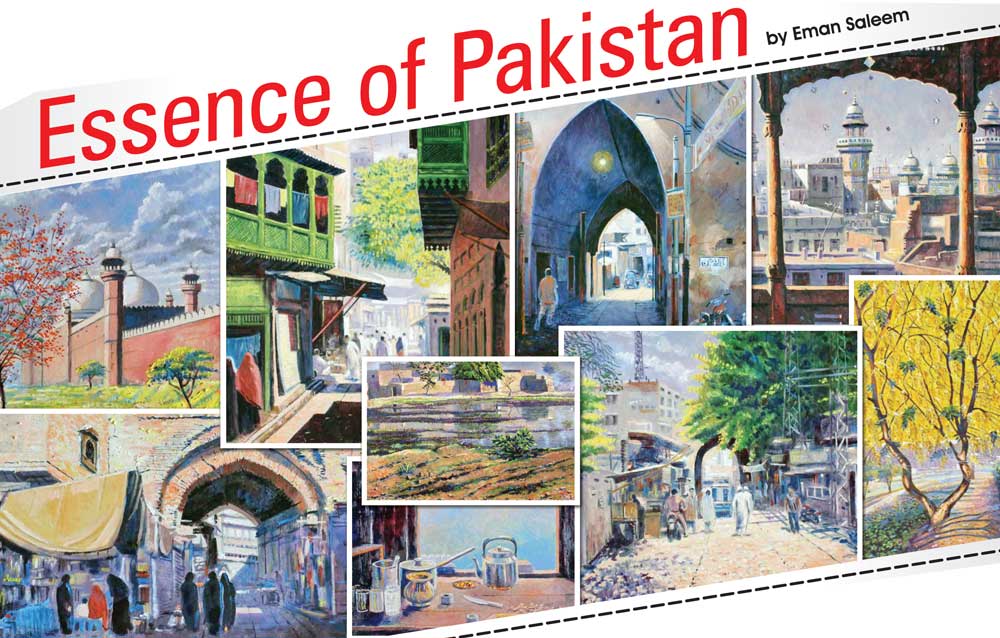ZULFIQAR ALI ZULFI’S HUES OF DUSK
- 29 Oct - 04 Nov, 2022
In Pakistan, being an artist low-key means struggling against a system, a mindset and perspectives. I have yet to meet an artist that has said his/her work comes with easy acceptance or that being an artist in Pakistan is painless. Speaking to an artist from the exhibition titled at Artciti Gallery, Ghulam Mustafa was insightful and that was before he even answered any of my questions. Over the phone, Mustafa tells me talking about Karachi’s art scene, he cannot use blingy words.

Mustafa is a hands-on painter with a career spanning over 50 long years. Studying painting from the prestigious National College of Arts in the 70s and then further training under some big names like Khalid Iqbal, Mian Ijaz ul Hassan, Colin David and Shakir Ali, his portfolio is too vast to cover and he has a list of awards he garnered to match, including the President’s Award for Pride of Performance in 2002.
They say “Lahore Lahore Aye”, a phrase so overused, it seemingly lost its sentiment, or maybe a Karachi-born and raised can just not resonate with it. But it’s always been so enchantingly unclear why paintings, poetry and books talk about the city so longingly. Mustafa, over his decades long career, has been consumed with Lahore, bringing it to life over and over again on his canvas. “My love for drawings and colours has always been topmost priority, and when I used to explore Lahore, I used to observe how great the blend of colours were. That inspired me to bring it all on the canvas and I started exploring more and spent hours in the streets painting live on the location. People use to sit around me offering me tea and food, and slowly my love for landscape and Pakistan grew in me.”
His recent collection at Artciti was a beautiful collection of the narrow streets of Lahore and nature working its magic in the mountainous and green landscapes. The Karachiite in me slightly smiled at a painting titled “Fisheries Boats at Karachi”: clustered tiny man-rowed wooden boats, how chaotically Karachi! I gazed at it long enough and the details of the woodwork scraping against the tide and the years on it really speak to you. I ask him, when does he know that an artwork has finished? “It’s very hard to determine that; when colours and ideas are bursting in your mind, you can’t really determine the end. Sometimes the work is finished but after a few years I may make some changes.”
Mustafa has served at the Punjab Arts Council in Lahore for 37 years and is the founding member and the General Secretary at the Artists Association of Punjab. His is a fight against the unacceptance of art; I asked him if there is rebellion in art? “There is rebellion in every field; rebellion does not always mean negativity. It also comes as a contest to perform better than others; then only a field progresses.”
Does this fight of acceptance of art render an artist to self-censorship? “Of course not! The first step for me as an artist is to be free. When free, we do not need a space to exhibit our art. We are free and no fear can contain an artist. Nothing can contain art, it’s not a word it’s a universe. So for me censorship in art means nothing,” says the 18 time solo exhibitionist.
Further into the conversation, I ask the artist about their understanding on the art scene in Karachi, a question I’ve asked every artist. “I believe Karachi is already expanded in terms of art; it has come a long way. They have some really exceptional artists, old and young, who are using old and modern techniques of art and inspiring many. Same goes for Lahore! There have been wonderful artists who have worked over the years and inspired so many young artists; they are brilliant as I see their work they are truly taking this profession in the right direction and I hope and pray that this field blooms and expands in the future,” Mustafa concludes.
COMMENTS